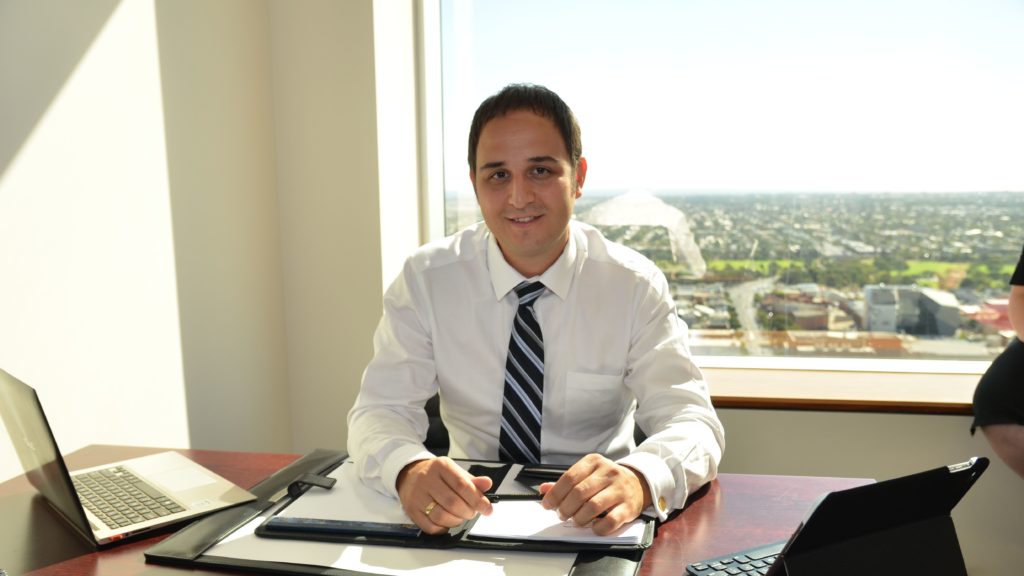Despite the fact that Australia has always been and, in many cases, still appears to be the ‘promised land’ for many immigrants who decide to leave their homeland and seek a better future Down Under, the country’s immigration law and policies change almost on a daily basis.
“In Australia, migration is certainly an ever-changing environment, therefore, my priority as the President of the South Australian branch of the of the Migration Institute of Australia, is to ensure that our members have the most reliable and practical access to the information they need in order to make the right decisions regarding the migration strategy they plan to follow,” explains newly-elected Mr Constantinos Paxinos who, together with wife Christina, an expert in Education, has been working in this field for the past seven years.
The 39-year-old agent says that Australia continues to have a strong migration appeal to younger people, who are keen to continue their studies and work abroad and that there are still a few prospective migrants from Greece who are keen to make the move.
According to Mr Paxinos, those who have plans to remain in Australia permanently or for an extended term, should try to obtain advice from a reputable registered migration agent or immigration lawyer who has the requisite knowledge about the various State’s migration policies and can advise not just about the current policies, but potential future policies and outline the risks and potentialities that may impact on a prospective migrant.
Mr Paxinos also notes that some conditions and laws vary from state to state, and failing to realise that early in the migration process can cost someone their visa prospects.
READ MORE: Varoufakis vs Mitsotakis: Australia dominates discussion on Greek immigration
“For those who are contemplating moving to a regional area in order to qualify for a regional visa – again, I strongly recommend they obtain advice from a reputable registered migration agent or immigration lawyer in the region they are contemplating,” Mr Paxinos says.
The son of migrants from the island of Ithaki, he notes that, despite all good intentions, there is still a lot of work that needs to be done in order to make the process easier and smoother for those who wish to make Australia their home.
“I would love to see the regional employer-sponsored visa settings returned to the criteria we enjoyed under the RSMS visa program prior to March 2018. This visa was vital for many businesses (small and large) in being able to attract and retain skilled migrants to fill their shortages. Backpackers and international student graduates were an excellent cohort of skilled migrants that filled real skill shortages in South Australia before March 2018 decimated the field by imposing a 3-year post qualification work experience requirement. If we can change the settings of the new regional visas to reflect something that at least resembles what we had in the RSMS visa, our businesses in Australia would benefit significantly, and by extension our economy and society would benefit as a whole.”
READ MORE: FECCA: Family migration is integral to the successful settlement of migrants in Australia
Mr Paxinos says he has every intention of working closely with the Department of Home Affairs and the State Government to assist in the development of laws and policies that are conducive to a sustainable migration program. He points to the knowledge of the 120 members at State level as well as the 2600 members at a national level and states that if that knowledge can be harnessed and engaged by Government, the migration bodies can provide a lot of assistance to ensure Australia’s policies do not create unintended undesirable outcomes as well as advancing the integrity, efficacy and social and economic contribution of migration to Australia through responsible policy setting.
“Our role as the peak body for migration professionals is to ensure our members have access to all of the most up-to-date information as well as a deep understanding of the contextual factors driving migration policy in Australia, and in terms of my constituency, mostly South Australia. We will continue to build on our ‘core business’ of keeping our members updated with high quality continuing professional development and professional support.
“We all know what our parents had to go through when they first came to Australia. We need to realise going forward that it is all about helping people build a better life, that will also lead to a prosperous country with thriving communities,” concludes Mr Paxinos.
READ MORE: Immigration cheat sheet about life and work in Australia








